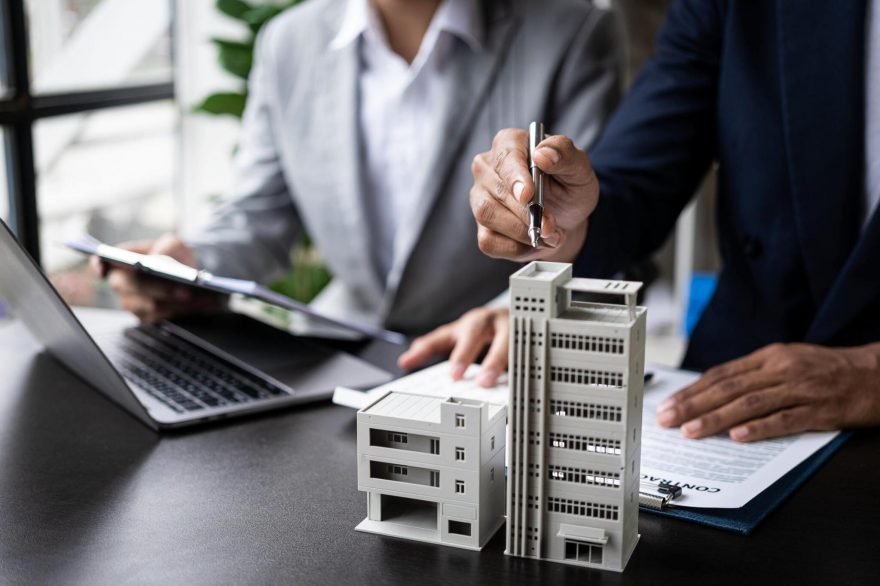SINCE 1988
203-546-7793

Negotiating a commercial real estate for lease in Newtown, CT, can be a complex and daunting process. With the right approach and knowledge, however, you can secure a lease agreement that benefits your business. Whether you’re a seasoned business owner or new to commercial leasing, these insights will provide valuable guidance in negotiating commercial real estate for lease.
✔ Research market rates and properties to make informed decisions for your commercial lease.
✔ Identify and rank your business’s specific needs for the lease.
✔ Use professional help to navigate lease complexities and protect interests.
✔ Learn key lease terms and negotiate effectively for better lease conditions.
✔ Choose a lease that supports business growth and offers flexibility.
✔ Know your limits and be ready to leave a lease deal that doesn’t fit.
✔ Carefully check and finalize the lease agreement to ensure it aligns with your business needs.

Understanding the market is a fundamental step in the process of negotiating commercial real estate for lease with trusted realtors like Tower Realty Corp. This knowledge not only empowers you to make informed decisions but also positions you to negotiate more effectively.
When it comes to commercial real estate for lease, having a firm grasp of the current market rates is indispensable. Here are the four key points to help you thoroughly understand market rates.
When searching for commercial real estate for lease in Newtown, CT, understanding your business’s specific needs and priorities is paramount. This insight ensures that the property you select aligns perfectly with your operational requirements and long-term business goals

When venturing into the realm of commercial real estate for lease, enlisting the expertise of a professional real estate agent or a lawyer can be a game-changer. Their guidance can navigate the complexities of leasing, ensure that your interests are protected, and help you secure the most favorable terms.
A commercial real estate agent is your ally in the search for the perfect property. Here are five crucial aspects to consider when working with an agent:
Navigating the intricacies of lease terms is a critical aspect of securing commercial real estate for lease in Newtown, CT. Understanding and negotiating these terms effectively can greatly influence the value and suitability of the lease for your business needs.
Being well-versed in the language and common terms of commercial leases is essential. Here are five key lease terms you should understand when considering commercial real estate for lease:
When selecting commercial real estate for lease, one of the most critical factors to consider is how the space can accommodate the future growth and changing needs of your business. Flexibility in your lease can save significant costs and hassles as your business evolves.
To ensure that your commercial real estate for lease supports your business both now and in the future, it’s essential to anticipate and plan for growth. Here are five key points to consider:

In securing commercial real estate for lease with expert realtors like Tower Realty Corp, being prepared to walk away from a deal is a powerful stance. It not only ensures that you do not settle for unfavorable terms, but it also demonstrates to landlords and agents that you are a serious and informed lessee. This thorough guide is divided into two key subsections: understanding your limits and the power of walking away.
Before entering negotiations for commercial real estate for lease, it’s crucial to understand your business’s limits and deal-breakers. Here are five key points to consider:
Finalizing an agreement for commercial real estate for lease is a critical phase where attention to detail and due diligence are paramount. This step ensures that the lease agreement aligns with your business needs and protects your interests.
Thoroughly reviewing the lease agreement for commercial real estate for lease is crucial before committing to anything. Here are five key areas to focus on during the review process:
Negotiating a commercial real estate for lease can be fraught with potential pitfalls. Common ones include failing to understand market value, overlooking important lease terms such as escalation clauses, neglecting to plan for business growth, underestimating operating costs, and not seeking professional advice. It’s crucial to approach negotiations well-prepared, understanding both the market and your specific business needs.
To ensure flexibility in your commercial real estate for lease, focus on negotiating terms such as subleasing rights, early termination clauses, and expansion options. These terms provide the leeway needed to adapt the space as your business evolves without incurring excessive penalties or costs.
Understanding subleasing is crucial in commercial real estate for lease. Subleasing allows you to rent out part or all of your leased space to another tenant. Ensure your lease agreement explicitly states your rights to sublease, under what conditions, and how the process works. This can offer flexibility, especially if your space needs to change before the lease term ends.
Location is one of the most critical factors in a commercial real estate lease. It can significantly impact your business’s visibility, accessibility to customers, and overall operational efficiency. When considering locations, think about factors like foot traffic, proximity to suppliers and customers, accessibility, and the overall character of the neighborhood.
Negotiating commercial real estate for a lease can impact your business credit, particularly if the lease involves credit checks or if your business’s financial stability is closely scrutinized. Ensure that your financial records are in good order and reflect the stability and creditworthiness of your business to avoid any negative impact on your business credit.
Having a contingency plan is wise when negotiating a commercial real estate for lease. If negotiations fall through or you decide to walk away from a deal, having alternative options ensures that your business can continue its operations without significant disruption. This plan might include having a list of other suitable properties or considering temporary space solutions

As you embark on the journey of securing commercial real estate for lease, remember that the right guidance can make all the difference. That’s where Tower Realty Corp comes into play. With our deep understanding of the commercial real estate market and a strong track record of successful negotiations, Tower Realty Corp is an expert in commercial properties. Contact us today to explore how they can turn your commercial leasing goals into reality.